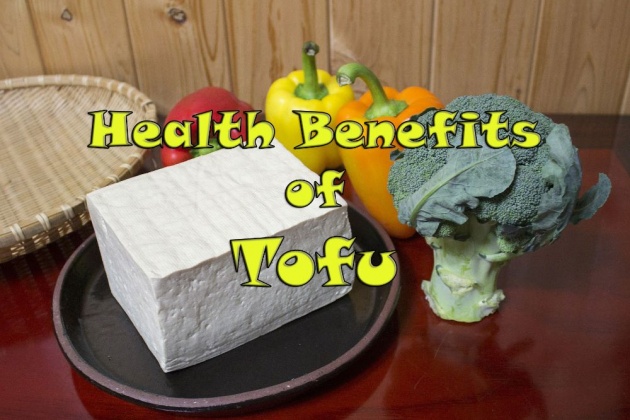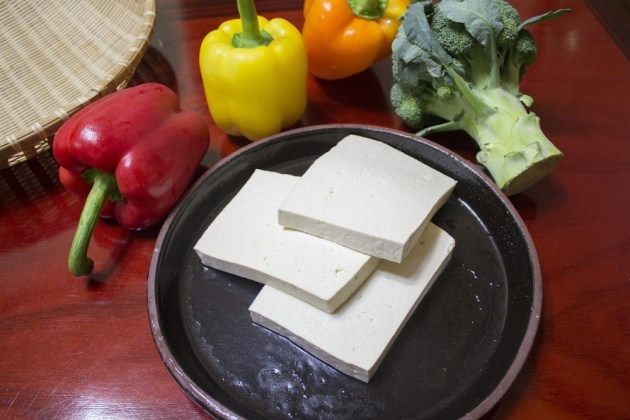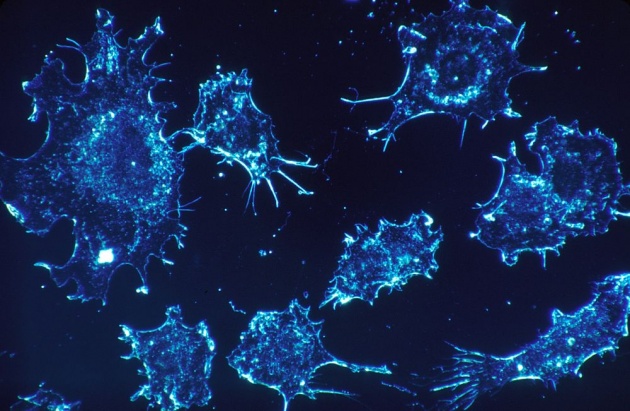Video credit: Natural Remedies - Healthy News via Youtube

Image credit: 621hjmit via Pixabay / Edited with Photoshop
Meat and dairy products have always been the main source of our daily protein needs, but they are also high in calories and bad cholesterol. Fortunately, there are other much healthier sources of protein such as vegetables and tofu. You can learn more about these vegetarian substitutes for meat here.
♥ What is Tofu? ♥

Image credit: 621hjmit via Pixabay
Tofu, also referred to as bean curd, is a popular food among many vegetarians and vegans as it is a rich and inexpensive source of protein. Aside from being a vegetarian substitute for meat, it is naturally gluten-free, low in calories, and an excellent source of calcium and iron.
It is made from coagulated soya milk that is pressed tightly into a solid block. The process of making tofu is pretty similar to making traditional cheese.
Tofu is an important part of East Asian cuisines. It is a common ingredient in Chinese, Japanese, and Korean dishes. In fact, it is the main way soy foods are eaten in those countries. Although it is very bland, it can easily absorb the flavors of the food and spices it is prepared with.
♥ Where Did It Come From? ♥
Tofu, like most soy-based foods, originated in China. According to some sources, tofu was discovered by a Chinese cook over 2000 years ago when he accidentally curdled soy milk by adding nigari seaweed to it.
Back in the eighth century, Buddhist priests from Japan went to China as envoys. Buddhists are not allowed to eat the flesh of any living creature--and since tofu is a rich source of protein--this discovery was very valuable to them. This is the main reason why they brought back the methods for making tofu with them when they returned to Japan.

Image credit: Engin_Akyurt via Pixabay
Just like many other foods during this time in history, tofu was only available to the aristocrats, warriors, and priests in Japan. It wasn't until much later that it became available to the general public all throughout the country.
♥ Tofu and America Meets ♥
Soybean has been used as hay or green manure in the United States since the 1920s. But, it wasn't until World War II that Americans really started to grow and eat it as a replacement for the imported oils and fats that got blocked during the war. By the 1960s, soybean production blossomed in the United States as more and more Americans found interest in healthy eating. By this time, about 75% of the world's supply of soybean was coming from the United States.
♥ Tofu Nutritional Facts ♥
Tofu contains all eight essential amino acids making it a good source of protein. Aside from that, it is also rich in calcium, iron, and other minerals like selenium, manganese, and phosphorous. It also contains decent amounts of copper, zinc, vitamin B1, and magnesium.
A 122 gram serving of hard tofu contains the following nutrients.
- 177 calories
- 12.19 grams fat
- 5.36 grams carbohydrate
- 15.57 grams protein
- 421 mg calcium
- 65 mg magnesium
- 3.35 mg iron
- 282 mg phosphorus
- 2 mg zinc
- 178 mg potassium
- 27 micrograms (mcg) folate, DFE
♥ Health Benefits of Tofu ♥
Countless studies and research have proven time and again that tofu provides a wide range of health benefits. Here are just some of them.
♥ Reduced risk of some cancers

Image credit: skeeze via Pixabay
The isoflavones found in tofu are known to reduce the risk of several types of cancer such as lung, prostate, and breast cancer. In fact, some studies even suggest that high intake of soy products may help prevent the development of endometrial cancer in post-menopausal women.
♥ Health benefits for women
Women, in particular, can significantly benefit from adding tofu in their diets as tofu contains a rich amount of isoflavones which is a plant-based compound that imitates the estrogen hormone in the body. These isoflavones help manage the menopausal symptoms in women by stabilizing the estrogen levels during menopause. It may even help relieve hot flashes and other menopause symptoms.
Some women also experience some relief from discomfort during menstruation. Additionally, pregnant women can also benefit from eating tofu as protein is essential in the development of the unborn child and the placenta, as well as for increasing and sustaining the amniotic fluid.

Image credit: Free-Photos via Pixabay
♥ Weight management

Image credit: SpencerWing via Pixabay
Tofu contains very small amounts of calories, fats, and sodium, as well as almost zero cholesterol. However, it is very rich in protein. This makes it a very good option for people who want to lose weight and maintain a healthy lifestyle.
♥ Lowers cholesterol levels
Did you know that regular consumption of tofu can actually reduce your cholesterol levels? Amazing, right? But, the benefits don't stop there. It can also help lower LDL or bad cholesterol in the body since tofu has higher levels of unsaturated fatty acids but lower levels of saturated fatty acids. Tofu is also a rich source of linoleic and lecithin acid which helps regulate the metabolism, as well as disperse and eliminate cholesterol deposits in the body.
♥ Helps maintain cardiovascular health

Image credit: PIRO4D via Pixabay
Tofu is a good source of protein without the risk of increasing your levels of LDL cholesterol, which is normally found in animal protein. The less LDL cholesterol you consume, the more you are protected against cardiovascular diseases. Furthermore, its low sodium content makes it a good alternative source of protein for people suffering from high blood pressure.
♥ Maintains skin health

Image credit: Engin_Akyurt via Pixabay
Protein produces skin cells. Our bodies need to constantly produce protein because old skin cells are continuously replenished with new cells in a four-week cycle. However, the normal source of protein, which is meat, also comes with saturated fatty acids. This causes the pores of the skin to open wide in order to secrete the excess fats. On the other hand, vegetarian protein sources like tofu have very minimal saturated fatty acids which can help you achieve a much smoother complexion.
♥ Other health benefits
Aside from the above-mentioned health benefits, daily consumption of tofu can help prevent the following conditions:
- Diabetes
- Osteoporosis
- Anemia
- Hair loss
- Liver damage
- Brain health issues
♥ Side Effects and Other Concerns ♥
While soy-based foods have many health benefits, it has also been linked to several health risks. If you have thyroid issues, breast tumors, kidney stones, or soy allergies, you may want to avoid or at least lessen your intake of tofu and other soy foods.
However, some researchers contradict this. They claim that eating soy foods pose no danger to people with kidney stones or thyroid problems. While researchers have contradicting opinions on this, they all agree that infants shouldn't be exposed to the isoflavones from soy foods as this may disrupt the development of their reproductive organs.
Furthermore, many soy products like tofu produced in the US are genetically modified. Genetically modified tofu can cause various health hazards such as liver issues and kidney stones, as well as digestive problems as GMOs kill the good bacteria in the gut. If you want to avoid genetically modified foods, make sure to buy certified organic tofus. Some versions of tofu available to the public are not certified organic but are labeled as "GMO-free" or "non-GMO" on their packaging.
♥ Final Thoughts♥
Eating soy foods like tofu is considered to be safe. However, it may not be for everyone, especially for people with health problems like thyroid issues, breast tumors, and kidney stones. While this is something researchers are still debating about, it is still a good idea to moderate your soy food intake. Remember, everything in moderation.
~oO0Oo~~oO0Oo~~oO0Oo~~
Thanks for reading! Have a wonderful day ahead of you and keep smiling. :)
Written by Chineyes for Bitlanders
For more quality blog posts, you may visit my page
Not yet on Bitlanders? Sign up now and be rewarded for sharing ideas, photos, and videos!



